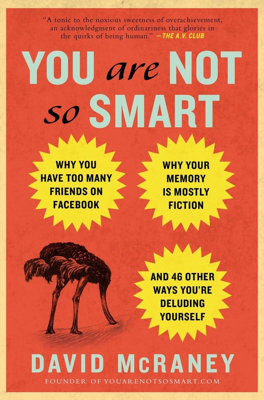Confabulation
Misconception vs. Truth
Misconception:
You know when you are lying to yourself.
Truth:
You are often ignorant of your motivations and create fictional narratives to explain your decisions, emotions, and history without realizing it.
Artistic License of Memory
- Just as movies take artistic license with true events, our memories are dramatized and filled with gaps by our brains.
- The brain fills in the blind spots in vision (e.g., the optic nerve blind spot) and memory alike, creating seamless, often fictionalized narratives.
Confabulation
- Confabulation refers to the brain's ability to create coherent but false stories to explain personal history and behavior.
- These fictional explanations are generated unconsciously and accepted as true by the individual.
Split-Brain Confabulation
- Split-brain surgeries (corpus callosotomies) reveal how the brain’s hemispheres can independently process information.
- Experiments with split-brain patients show that when one hemisphere acts without informing the other, the speaking hemisphere often fabricates reasons for these actions.
- Example: A patient instructed to walk by the right hemisphere might explain the action with a false reason provided by the left hemisphere ("I need a drink").
Everyday Confabulation
- Non-split brains also engage in confabulation, albeit less extreme.
- Various psychological conditions exemplify severe confabulation:
- Korsakoff’s Syndrome: Recent memories are replaced with fabricated stories.
- Anosognosia: Patients deny paralysis and create alternative explanations.
- Capgras Delusion: Individuals believe loved ones are impostors.
- Cotard’s Syndrome: Sufferers believe they are dead.
Higher Cognitive Processes and Introspection
- People are generally unaware of their higher cognitive processes and the true stimuli behind their responses, as shown by the research of Richard Nisbett and Timothy DeCamp Wilson.
- Studies demonstrate that individuals often provide confident but inaccurate justifications for their feelings and actions.
- Example: Subjects choosing identical stockings gave reasons based on texture or color, unaware of the influence of presentation order.
Qualia and Consciousness
- Qualia are the ineffable experiences of consciousness (e.g., seeing red, feeling pain) that can’t be fully shared or described.
- There is more complexity to thoughts and feelings than can be directly accessed through introspection, according to philosophers like Daniel Dennett.
Practical Implications
- Recognizing that personal narratives are often constructed could provide a sense of acceptance.
- The story of one's life, while embellished, contains a general narrative that contributes to the sense of self.
